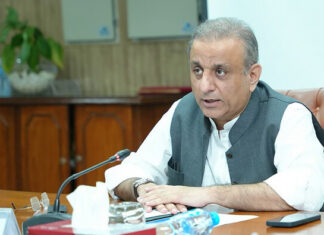ISLAMABAD: In a significant policy move aimed at shielding Pakistan from a looming financial burden of more than $5.64 billion, the Economic Coordination Committee (ECC) of the Cabinet has authorised the Ministry of Energy (Petroleum Division) to initiate formal negotiations with the State of Qatar to address the country’s mounting surplus of imported Liquefied Natural Gas (LNG).
According to reliable sources, the Petroleum Division tabled a summary titled “Authorization for Negotiation with State of Qatar for Mitigation of Surplus LNG Issue” before the ECC during its meeting held on August 19, 2025. After detailed deliberations, the ECC approved the proposal, granting the ministry a mandate to seek relief from Doha in order to mitigate the growing glut of regasified LNG in the national transmission system.
Sources said the issue is both urgent and complex, as Pakistan faces a projected surplus of 177 LNG cargoes between July 2025 and 2031 under binding long-term contracts. The financial impact of these surplus cargoes, estimated at $5.64 billion, has put the government in a difficult position. Without renegotiation, the surplus could create severe economic and operational strain on Pakistan’s gas sector, especially as domestic demand for imported LNG has weakened considerably.
The Petroleum Division briefed the ECC that Pakistan and Qatar had first signed a Memorandum of Understanding (MoU) in 2015 to secure LNG supplies and ease the country’s energy crisis. Following this framework, Pakistan State Oil (PSO), acting as the government’s designated entity, signed two long-term Sale Purchase Agreements (SPAs) with Qatar Energy in 2016 and 2021. Both deals were concluded on a Government-to-Government (G2G) basis and later endorsed by the federal cabinet. Separately, Pakistan LNG Limited (PLL) signed a 15-year supply contract with Eni in 2017 through international bidding.
Under the SPAs with Qatar, Pakistan is committed to lifting 6.75 million tonnes of LNG annually, equivalent to about 108 cargoes each year, on a strict Take-or-Pay basis. This means Pakistan must pay for the contracted cargoes regardless of whether they are consumed or not. However, in recent years, the Petroleum Division reported that demand destruction has taken place, driven largely by reduced offtake from LNG-based power plants and captive power units. The reduction in demand is attributed to tariff hikes on captive power and the imposition of the Off-the-Grid levy, which discouraged industries from using imported gas.
The ECC was informed that as a result, Sui Northern Gas Pipelines Limited (SNGPL) has been struggling to absorb the contracted LNG volumes. With lower demand in the system, the surplus has become unavoidable. Both SNGPL and PSO urged the government to seek relaxation from Qatar Energy to prevent unnecessary financial losses.
At present, Pakistan’s contractual flexibility is extremely limited. Under the SPAs, PSO can request deferment of up to five cargoes in any contract year, with a lifetime cap of 10 cargoes for the entire contract period. For 2025, PSO has already exercised this Annual Downward Flexibility Quantity and deferred five cargoes. Beyond this, the agreements prohibit disposal of cargoes in open markets, except under a Net Proceed Differential mechanism which itself requires prior mutual agreement before the annual delivery plan is finalised.
To comply with Take-or-Pay commitments in the short term, the government has resorted to curtailing gas production from indigenous fields in order to accommodate imported LNG. But this stopgap measure has sparked concern among exploration and production companies, who have warned of potential reservoir damage from prolonged curtailment of local gas output.
Given these constraints, the Petroleum Division presented various options for negotiations with Qatar before the finalisation of the Annual Delivery Plan, scheduled for October 16–17, 2026. Among these options, one option is to reduce surplus cargoes on a mutually agreed basis, with compensation but without binding commitments. And, another option is to defer surplus cargoes now and lift the equivalent volume beyond 2031 by extending the contract period.
During the ECC discussions, the Special Assistant to the Prime Minister on Industries and Production stressed the need for a thorough cost-benefit analysis of both options in order to identify the most financially viable path forward.
After weighing the proposals, the ECC granted authorisation to the Petroleum Division to formally approach Qatar Energy and negotiate relief under the two identified options. Sources said the move underscores Pakistan’s limited room for manoeuvre, given the rigid terms of the existing contracts and the steep costs associated with the LNG glut.
With the surplus projected at 177 cargoes and an associated cost of $5.64 billion, Pakistan now sees renegotiation with Qatar as the only viable route to escape what officials have described as a heavy and unsustainable burden on the national economy.
























